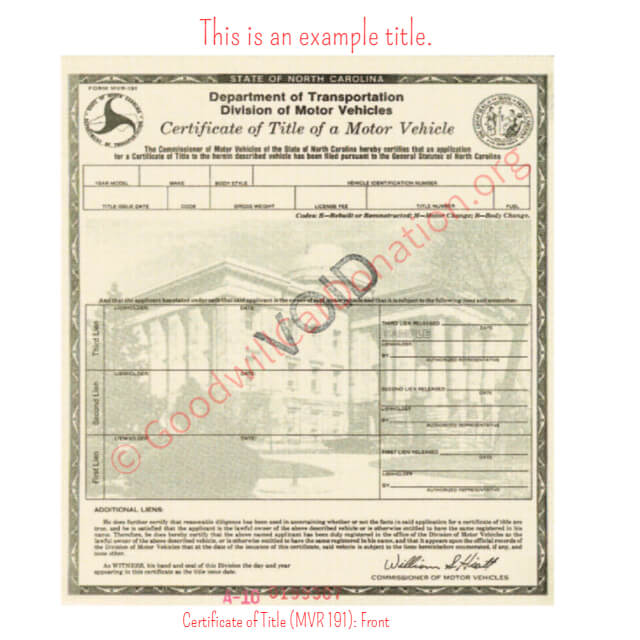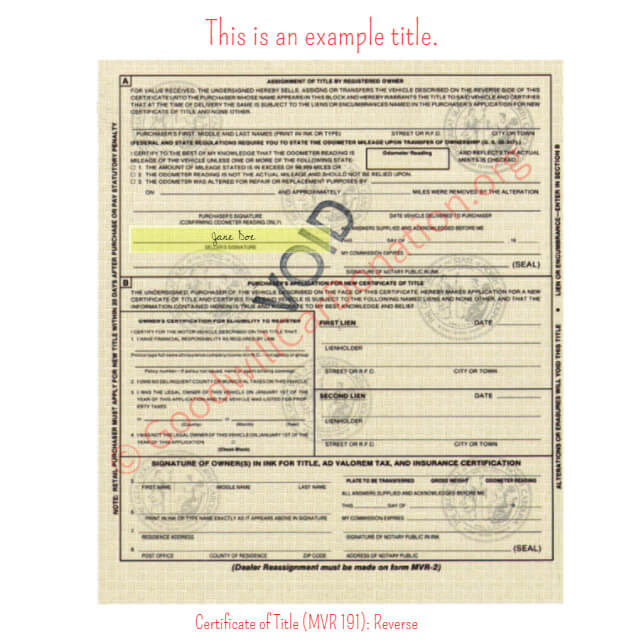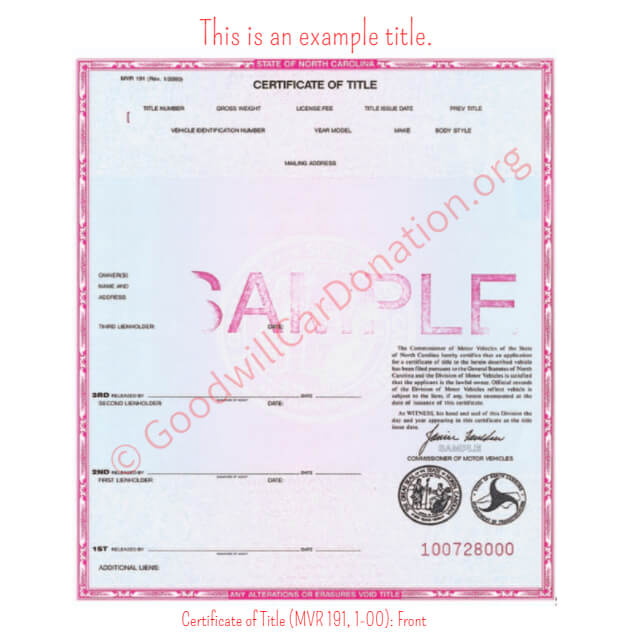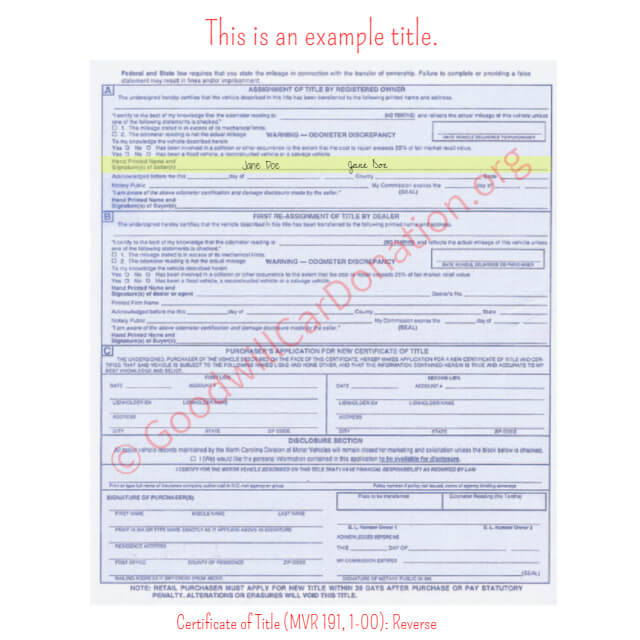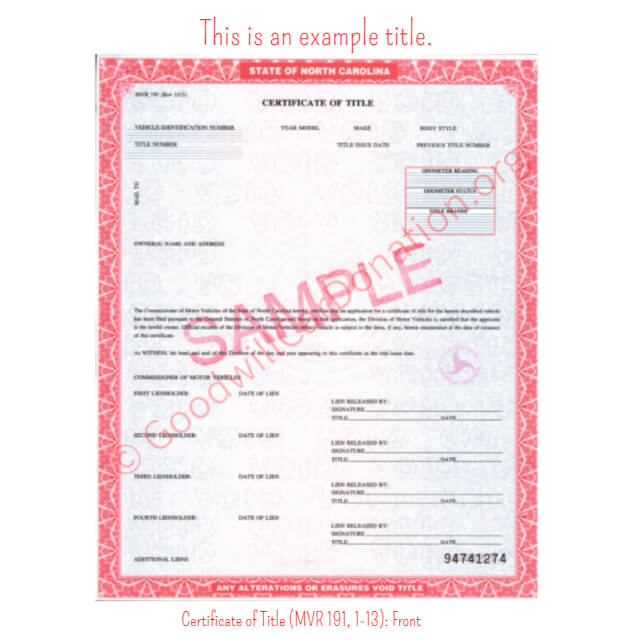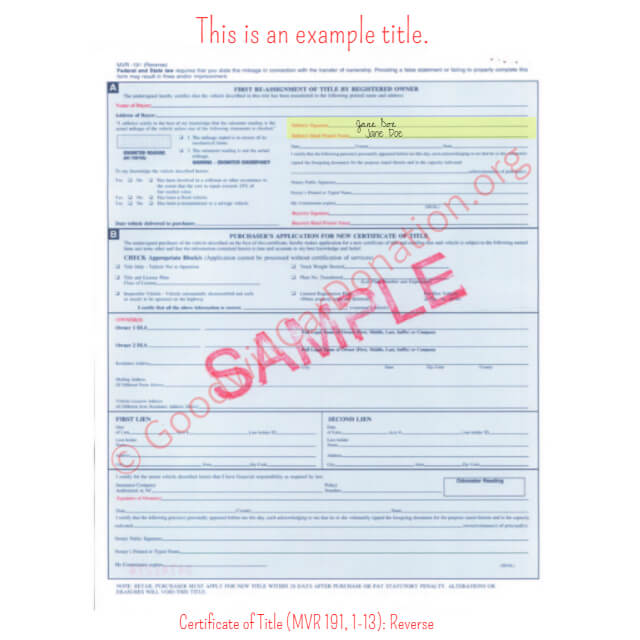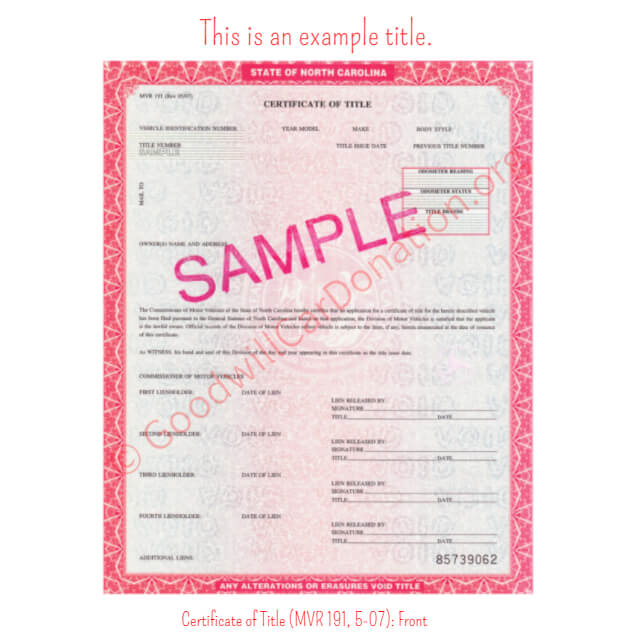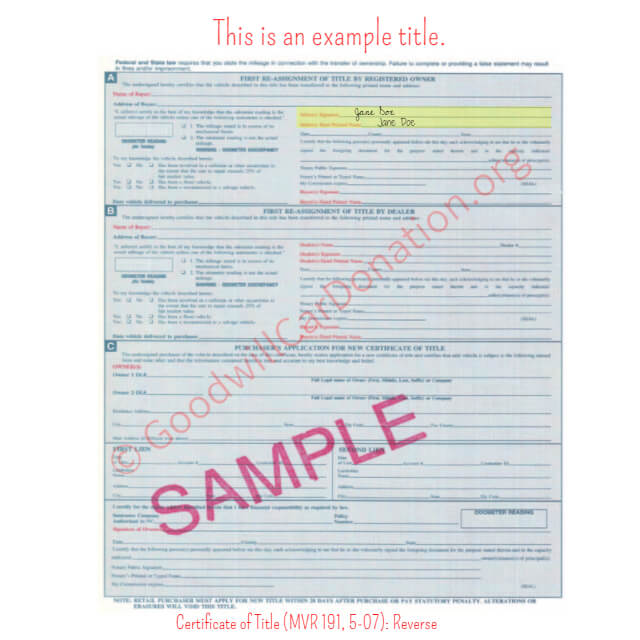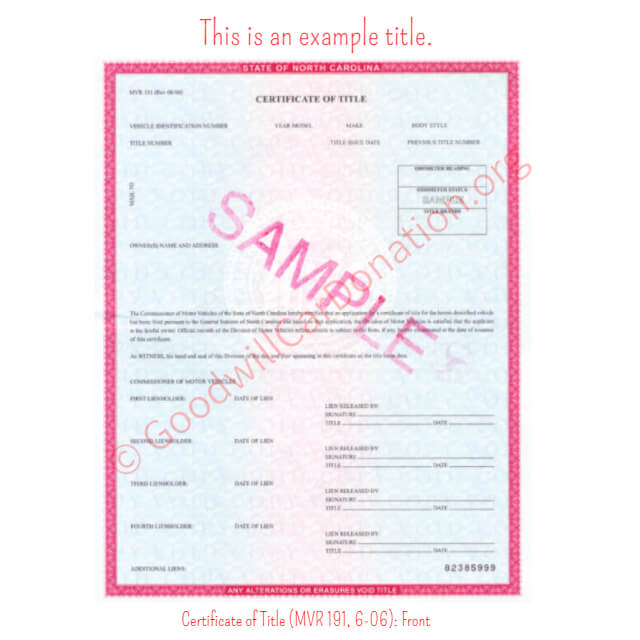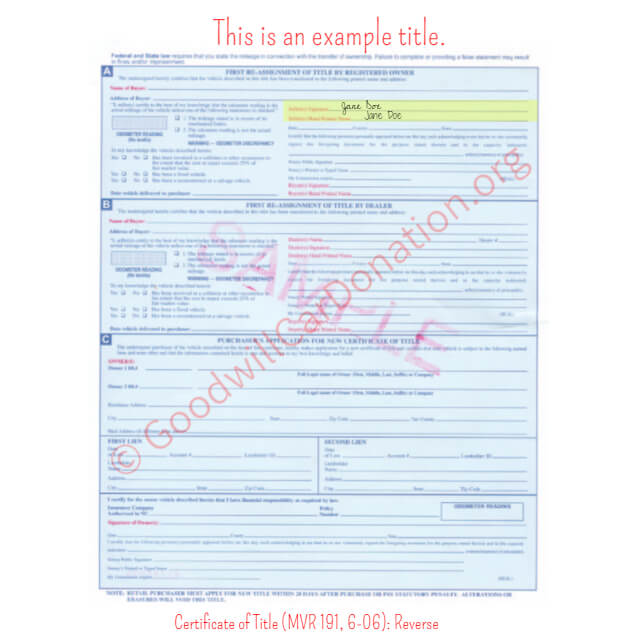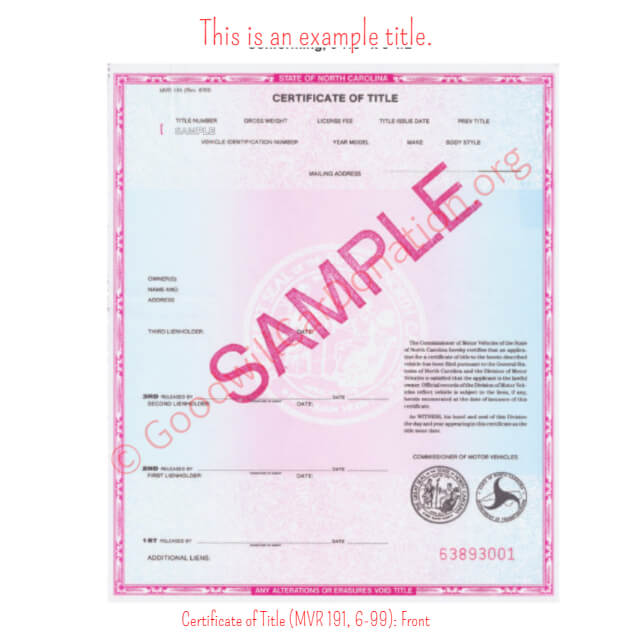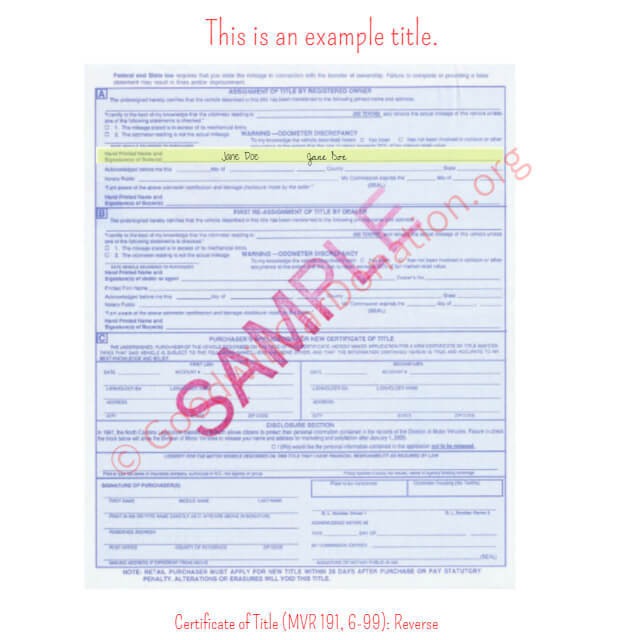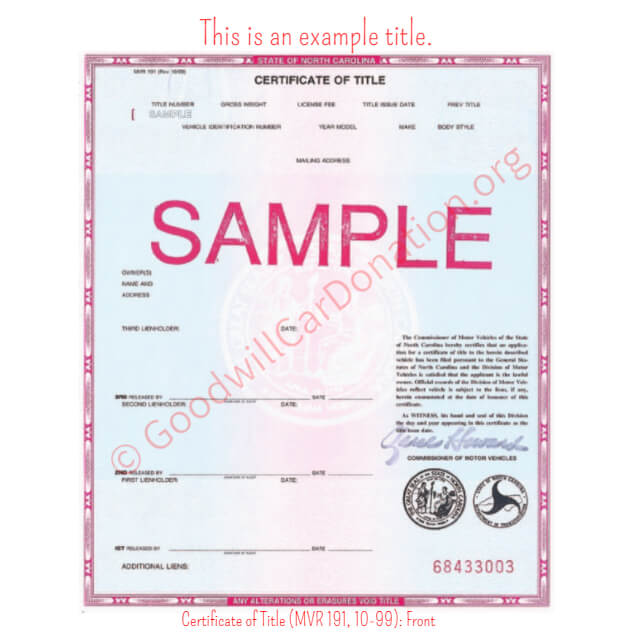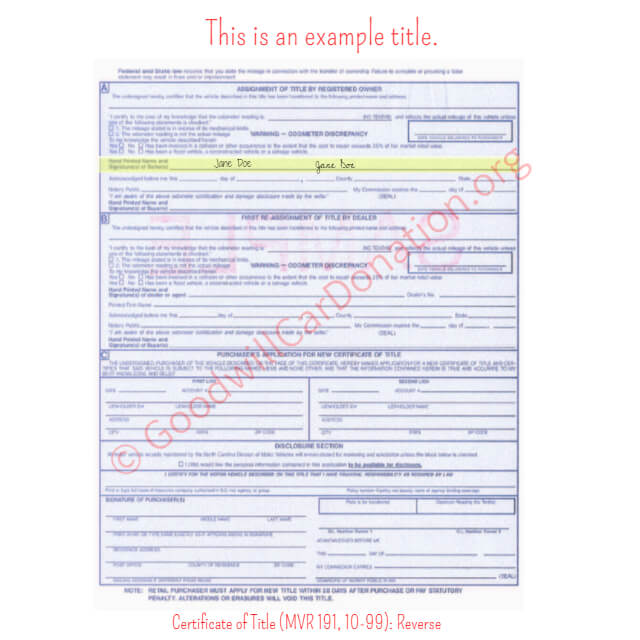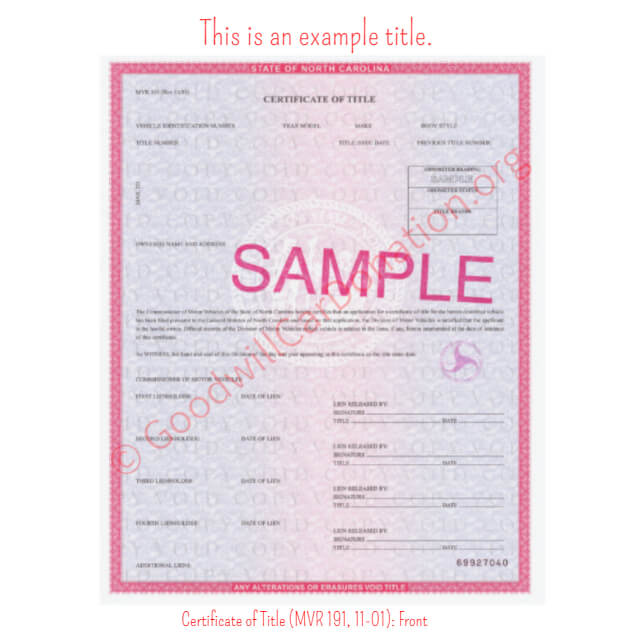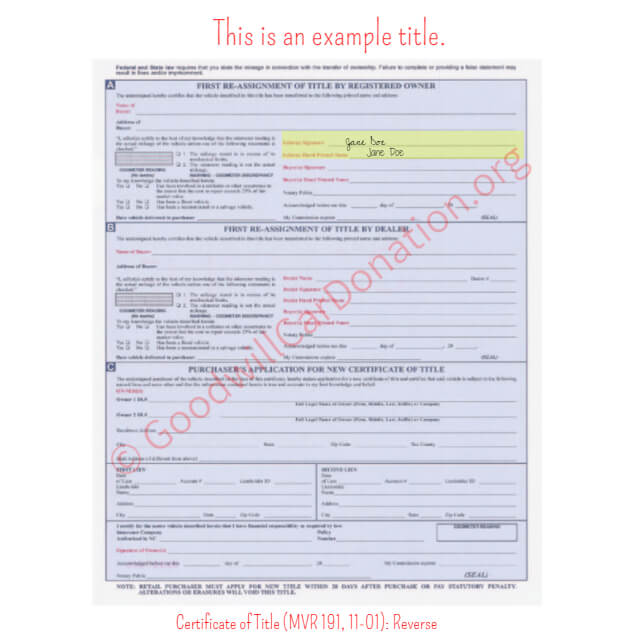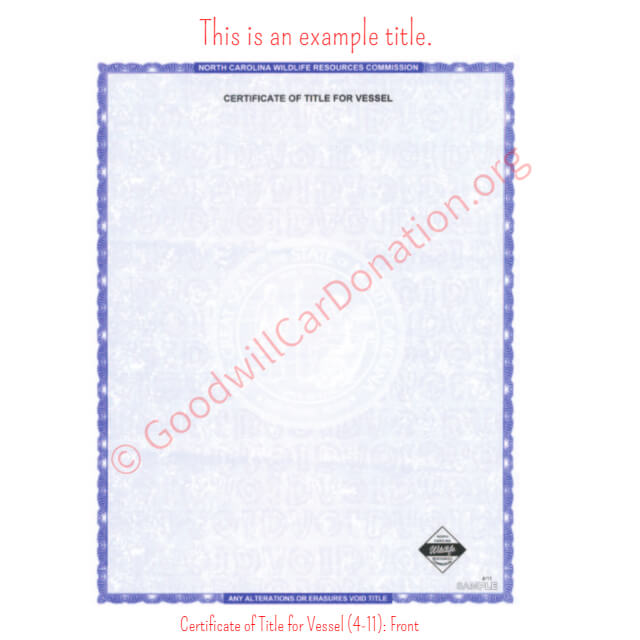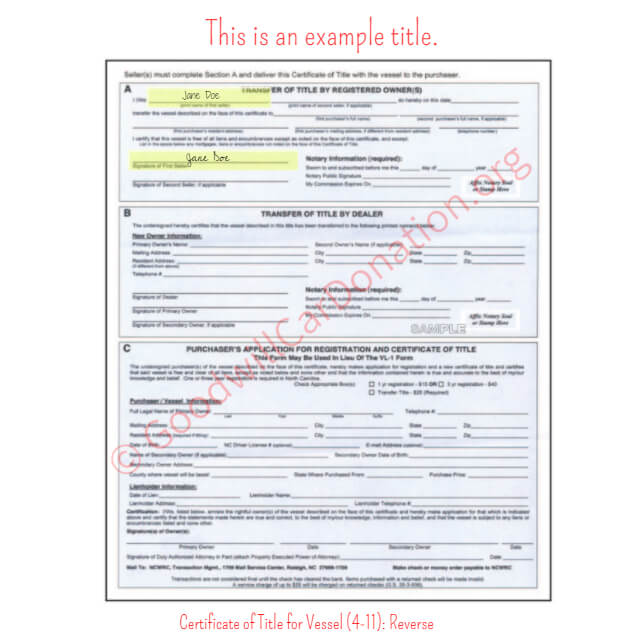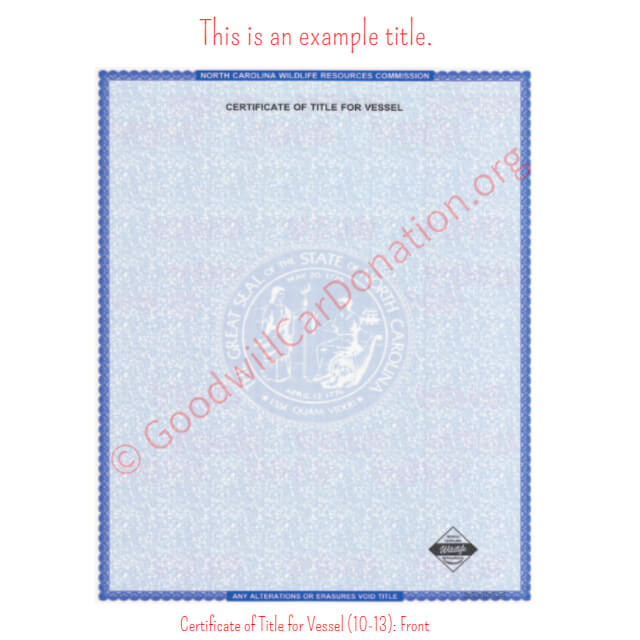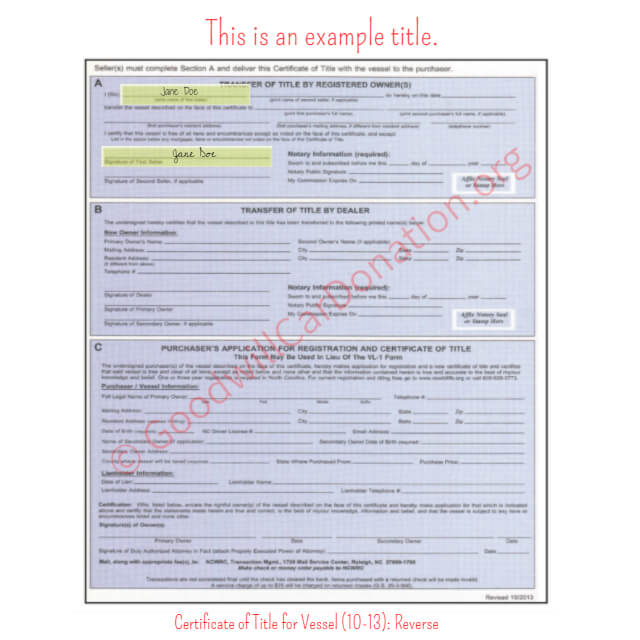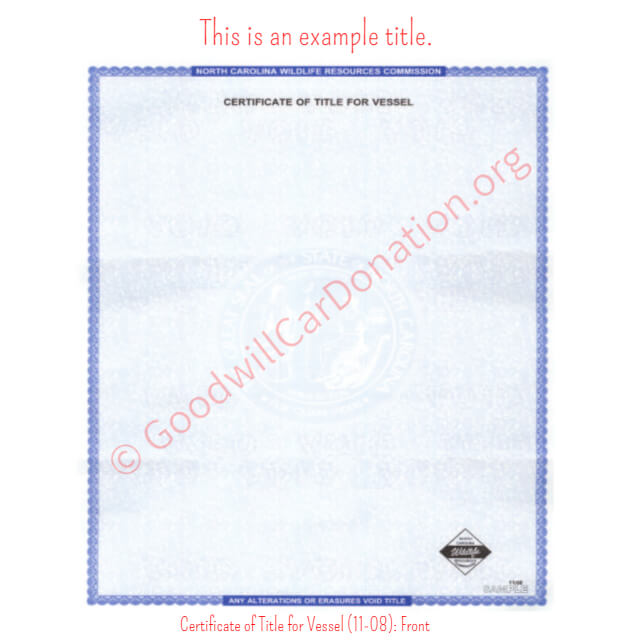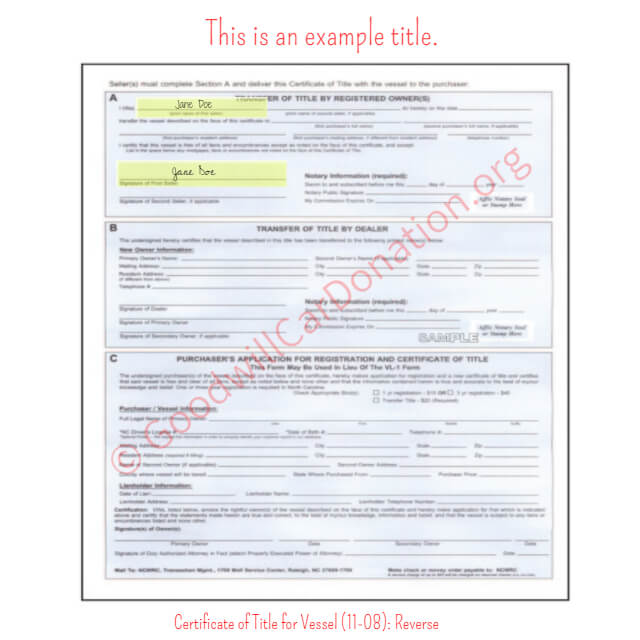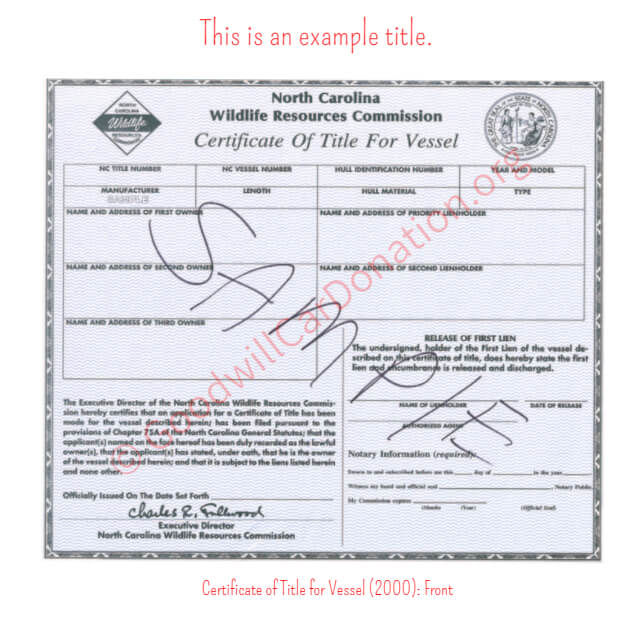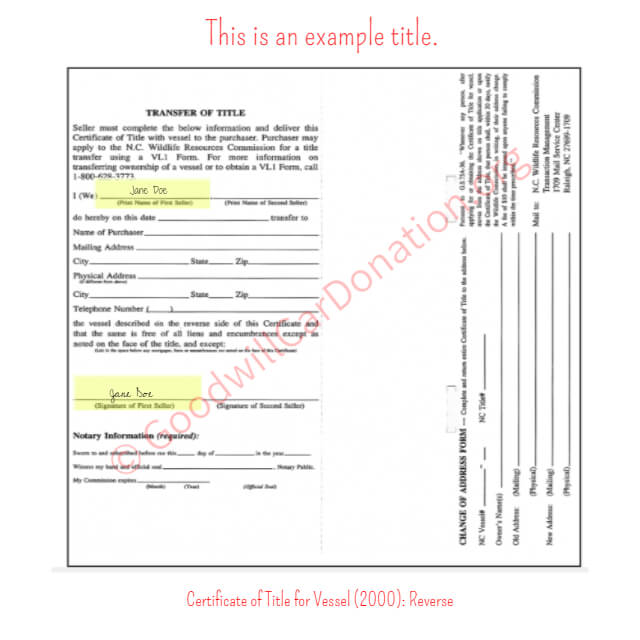How To Sign Your North Carolina Title
Planning to donate your car in North Carolina? Before you hand over the title, it’s important to complete the signing process correctly. This step-by-step guide will show you exactly where to sign and print your name, even if the vehicle has multiple owners listed. You’ll also find guidance on how to avoid common errors that could invalidate your title. For added clarity, we’ve included real examples of North Carolina titles marked with helpful notes so you can follow along easily. Whether you’re new to this or just need a quick refresher, this resource has you covered. If you still have questions, our team is just a phone call away, ready to help.
The person (or persons)* listed on the front of the title must follow these steps, unless otherwise noted:
- Print your name (or names)* on the back of the title where it says “Seller’s Printed Name”.
- Sign your name (or names)* on the back of the title where it says “Seller’s Signature”.
To make your donation easier, we’ve displayed the different North Carolina vehicle titles below and marked exactly where to print and sign your name on each one. Just click any image to enlarge it. Have questions? Our friendly Title Clerks are happy to help – just call (866) 233-8586.
Note: Actual title designs may vary slightly from the images shown above.
Official North Carolina Government Links & Contact Info
These official links help make your title transfer easier and faster. You can find your local DMV office, get info about your car, handle abandoned vehicles and check common title questions. There are also forms you can download to save time. It’s everything you need in one place, straight from the state.
- County Title Offices
- Obtain Vehicle Specific Information
- Unclaimed/Abandoned Vehicles
- Vehicle Title FAQs
- Vehicle Title Forms
Contact the North Carolina Division of Motor Vehicles: (919) 715-7000
Contact the North Carolina Division of Motor Vehicles – Title Division: (919) 715-7000, option 3
North Carolina Vehicle Titles: How To For Multiple Owners
If there is more than one owner listed on the title, one or both must sign it depending on how the names appear. See the below chart for details.
Remember, the name used to sign the title must match the name shown on the title exactly. Therefore, always remember to print/sign your name exactly as it is shown on the title.
|
John Doe OR Jane Doe |
If “OR” is present between the names, only one of the owners must sign the title. |
|
John Doe AND/OR Jane Doe |
If “AND/OR” is present between the names, both owners must sign the title. |
|
John Doe AND Jane Doe |
If “AND” is present between the names, both owners must sign the title. |
|
John Doe Jane Doe |
If there is nothing present between the names, both owners must sign the title. |
Please take note to adhere to the below instructions so as not to void your title.
- Do not use markers or pencils. Only blue or black pen are allowed.
- Do not cross out or strikethrough any text or writing.
- Do not use white-out or similar substance.
- Do not rip, tear, or tape the title.
- Do not doodle on the title.
Still Have Questions? Find Your Answer Below!
Are There Any Fees I Should Watch Out for When Transferring a Title?
Yes, when transferring a vehicle title in North Carolina, you’ll need to be aware of several common fees. The standard title transfer fee is $56, and if you’re registering the vehicle at the same time, there may be additional fees for license plates, county taxes and registration renewal. You’ll also need to pay a Highway Use Tax, which is typically 3% of the vehicle’s purchase price, unless you qualify for an exemption (such as gifting within a family). Some title transfers may also require notarization, and notary fees can vary by provider.
Are There Any Special Rules for Transferring a Title After a Divorce?
Yes, North Carolina has specific rules for transferring a title due to divorce. If a vehicle is awarded to one party in a divorce settlement, that individual can transfer the title without paying the Highway Use Tax, as long as they provide a copy of the court order or separation agreement. Both parties must also ensure that the title is signed correctly and notarized as required. Be sure to include documentation proving the legal transfer of ownership due to divorce when submitting the title application.
Can I Transfer a Title If the Owner Is Deceased?
If the vehicle owner has passed away, the process to transfer the title will depend on whether the estate has been probated. If probate is complete, the executor can transfer the title using appropriate documentation from the court (such as Letters Testamentary). If no probate was necessary, the heirs may be able to transfer the title using an Affidavit of Inheritance. In either case, you’ll need to provide a death certificate, proof of identity and a completed title with the correct signatures and notarization.
How Can I Fix an Error If I Already Messed Up the Title?
Mistakes on a North Carolina title, like incorrect names, crossed-out signatures, or missing fields, can invalidate the document. If this happens, you’ll need to apply for a duplicate title by completing Form MVR-4, pay a replacement fee (usually $21) and wait for the corrected title to be issued. You cannot transfer a vehicle with an altered or damaged title, so it’s important to request a new one before proceeding. Avoid using correction fluid or scratching out information, as this can lead to processing delays or rejections.
How Do I Avoid Title Fraud During the Transfer Process?
Title fraud is a serious issue, but it’s preventable with a few smart steps:
• Always verify that the Vehicle Identification Number (VIN) on the title matches the vehicle.
• Ask to see the seller’s ID and ensure it matches the name on the title.
• Insist that the title be signed and notarized in your presence.
• Avoid paying in cash without a bill of sale.
• Use official DMV paperwork and keep copies of all signed documents.
Being cautious protects you from buying a stolen or salvaged vehicle under false pretenses.How Long Do I Have to Transfer the Title After a Sale?
In North Carolina, buyers have 28 days from the date of purchase to transfer the vehicle title into their name, no matter if it’s a pickup truck, van, sedan, SUV, sports car or other specialty automobile. Failing to meet this deadline may result in late fees, and you could face legal complications if the vehicle is involved in an incident while still titled to the seller. Sellers should also submit a Notice of Sale (Form MVR-615) to the DMV to protect themselves from liability.
What Happens If I Forget to Remove My License Plate?
In North Carolina, license plates do not stay with the vehicle when sold because they remain with the owner. If you forget to remove your plates, the buyer could use them improperly, putting you at risk for unpaid tolls, tickets, or legal responsibility. Always remove your plates at the time of sale, and if the vehicle is no longer being used, return them to the DMV or have them destroyed properly.
What Should I Do If My Name Changed Since the Title Was Issued?
If your legal name has changed (due to marriage, divorce, or court order), you must update the title before or during the transfer process. You’ll need to provide legal proof of the name change, such as a marriage certificate, divorce decree, or court order, along with identification that reflects the new name. Use Form MVR-5 to request the correction when applying for a duplicate or replacement title.
If you’re in Charlotte, Raleigh, Greensboro, Durham, Winston-Salem or anywhere in North Carolina and you have questions about signing your title or need help with the donation process, the Goodwill Car Donations team is ready to assist. Give us a call today and we’ll guide you every step of the way to make your vehicle donation simple and stress-free.
Last Updated: August 13th, 2025
